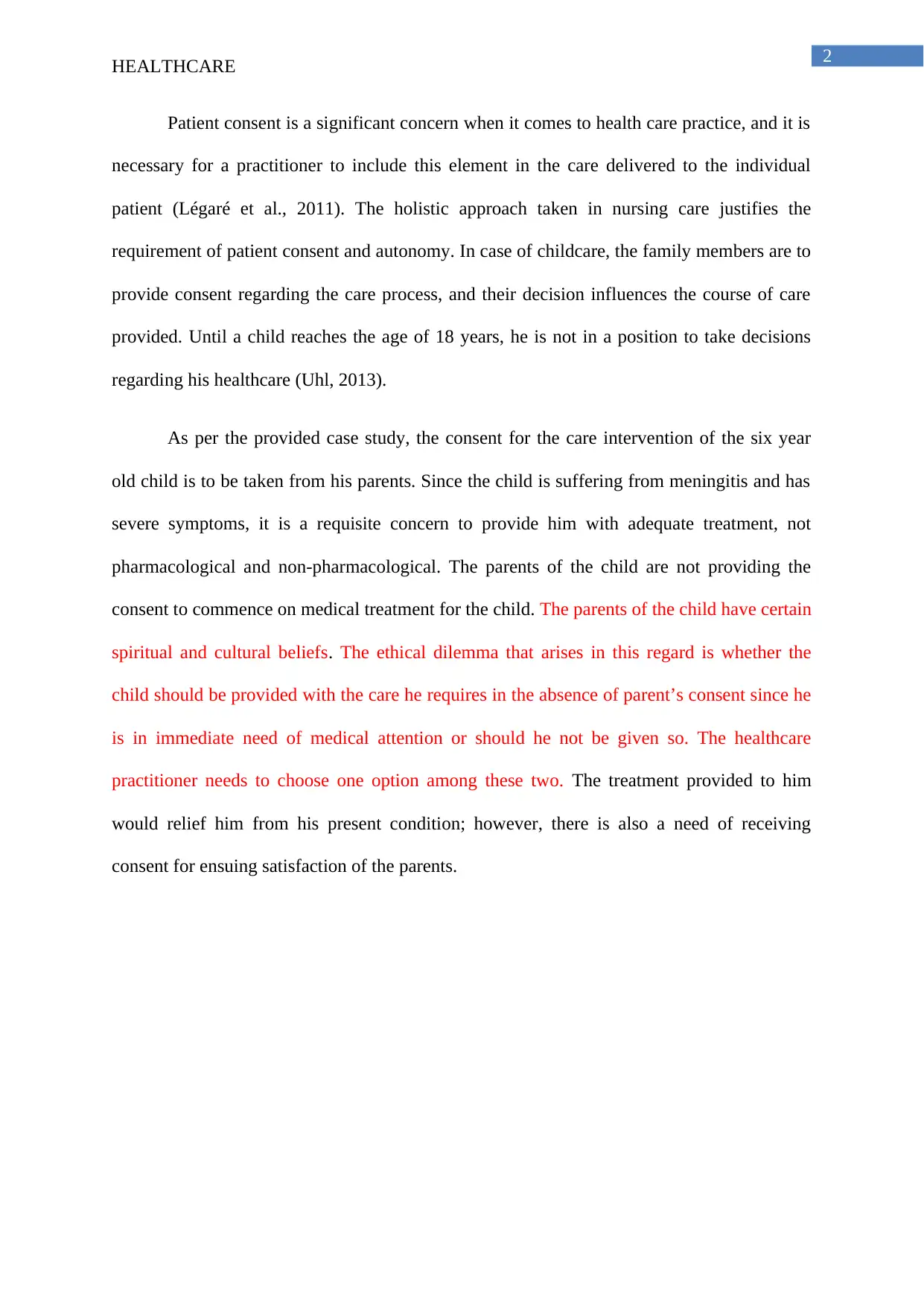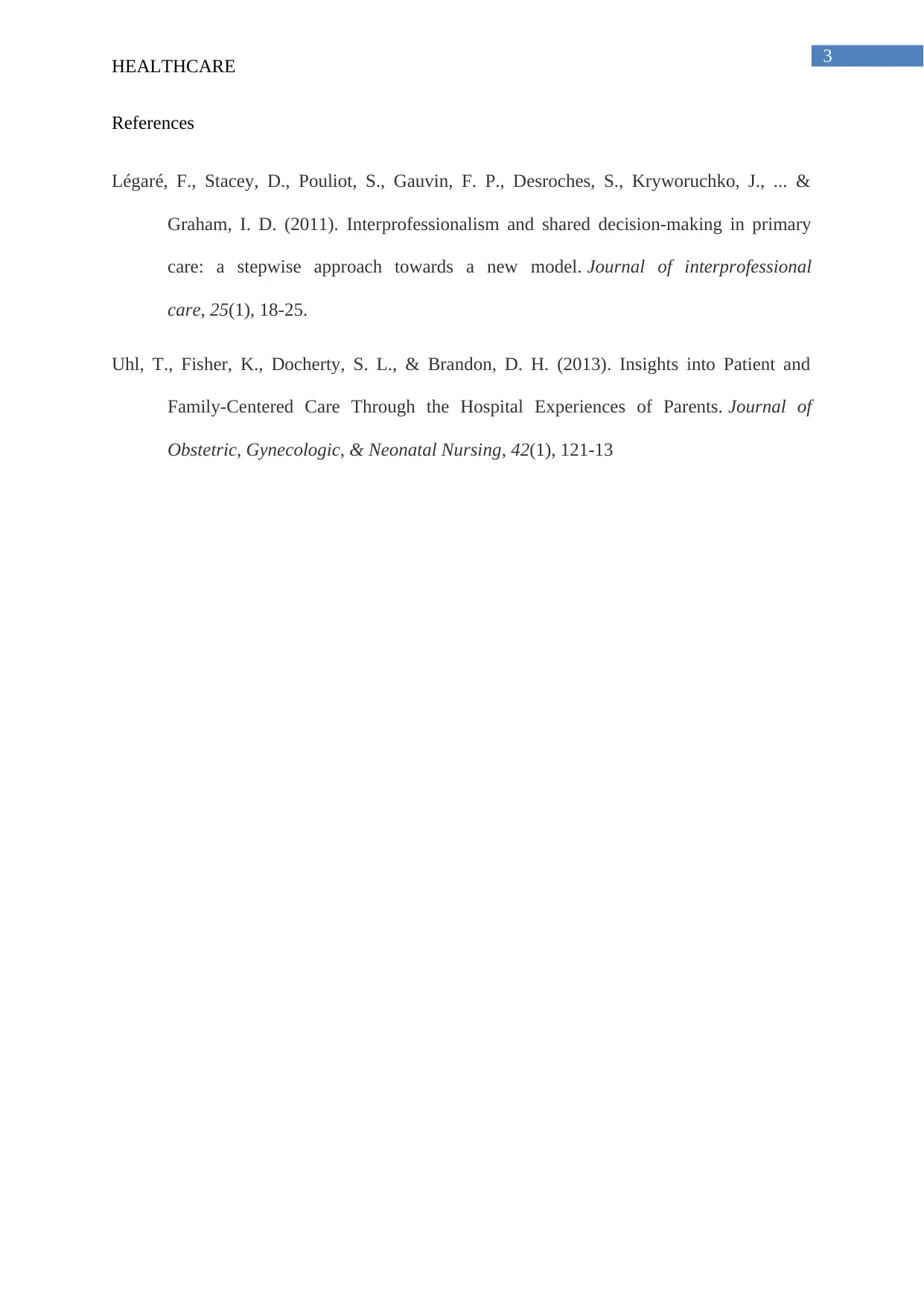Healthcare Ethics: Patient Consent and Treatment Dilemma in Pediatrics
VerifiedAdded on 2020/04/07
|3
|425
|31
Case Study
AI Summary
This case study examines the ethical dilemma surrounding patient consent and treatment decisions in healthcare, specifically focusing on a scenario involving a six-year-old child diagnosed with meningitis whose parents are hesitant to provide consent for medical treatment due to their religious beliefs. The assignment explores the conflict between the child's immediate need for medical attention and the parents' right to make decisions regarding their child's healthcare. The case study analyzes the responsibilities of healthcare practitioners, the importance of informed consent, and the potential consequences of both providing and withholding treatment. It also considers the legal and ethical implications of parental consent in pediatric care and explores the role of cultural and religious beliefs in medical decision-making. The case study emphasizes the need for healthcare professionals to balance the child's well-being with parental rights and the importance of ethical considerations in medical practice, drawing from resources like Légaré et al. (2011) and Uhl (2013).
1 out of 3










![[object Object]](/_next/static/media/star-bottom.7253800d.svg)